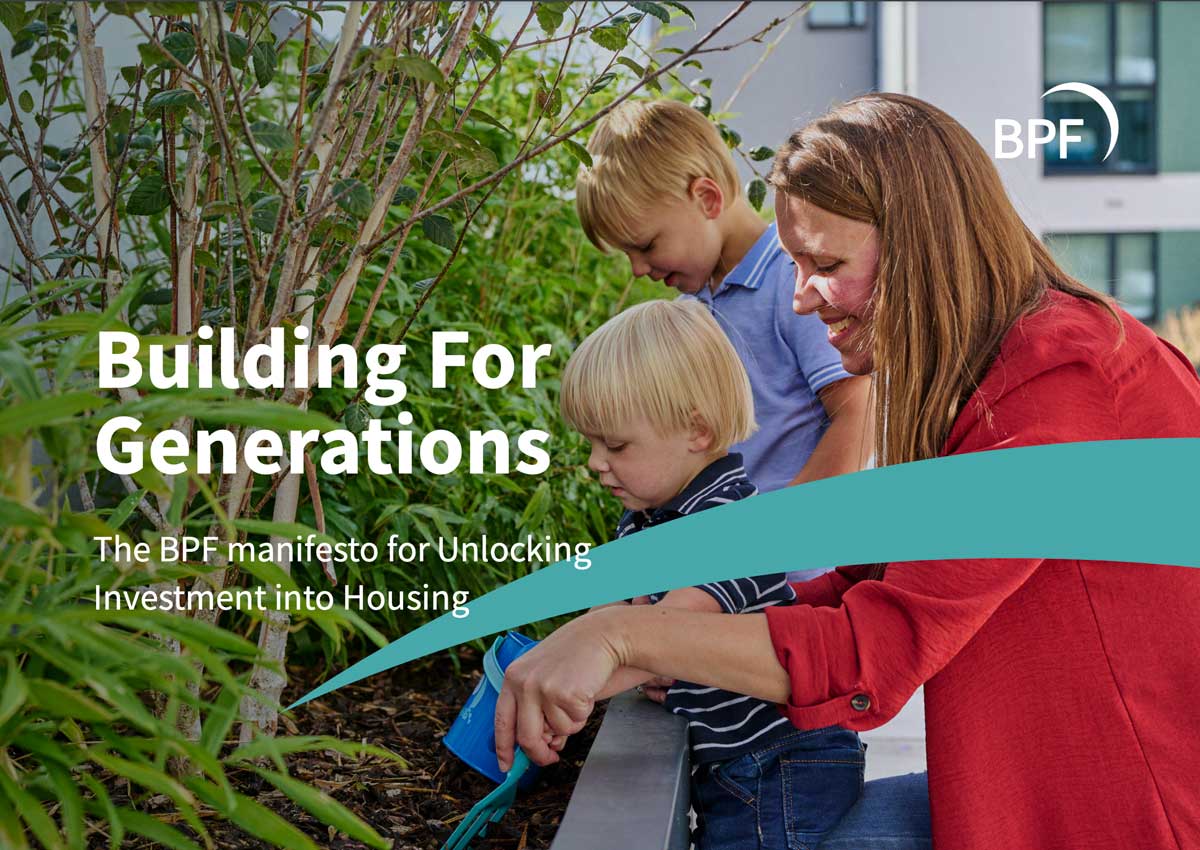Image: Istock
A new code for For-Profit housing providers
Structured around seven core themes, the new Code of Governance provides a framework to safeguard the interests of both shareholders and customers, and to protect the reputation of the sector

GOVERNANCE

Ceri Victory-Rowe
Director, Campbell Tickell

Greg Campbell
Partner, Campbell Tickell
Issue 73 | September 2024
In June 2024, a new Code of Governance for For-Profit Registered Providers (FPRPs) was launched by the British Property Federation, in conjunction with Campbell Tickell. The development of the new Code was overseen by a working group from the BPF’s affordable housing committee, chaired by Rob Beiley, Partner at Trowers & Hamlins.
FPRPs are profit-making organisations in the business of providing affordable housing, including by leveraging institutional investment, and which are registered with the Regulator of Social Housing. A critical step forward, the new Code establishes a set of standards aiming to promote good governance throughout England’s FPRP sector. As institutional investment, largely via FPRPs, significantly supports affordable housing, good governance is crucial for protecting shareholders, customers, stakeholders and the sector’s reputation.
Economic and social prosperity
Housing is essential to the UK’s economic and social prosperity, Ian Fletcher, Director of Policy at the British Property Federation (BPF), commented at the launch. Pension funds are now a key source of new capital for delivering homes and, as their manifesto offer to the new government – Building for Generations – outlines, a step change is needed in output of homes of all tenures – including affordable housing.
The new Code of Governance offers FPRPs an opportunity to demonstrate their commitment to the principles and practice of good governance, using an agreed set of standards that recognise the unique role FPRPs play in the affordable housing sector. Additionally, its introduction reflects the growing maturity of the sector, said Beiley.
Methodology
The Code was created with reference to existing relevant codes of governance, such as UK Corporate Governance Code and the National Housing Federation’s Code of Governance.
However, as Greg Campbell, Partner at Campbell Tickell, who drafted the code with colleague Ceri Victory-Rowe said, while the existing codes of governance used by many organisations in the sector all have strengths, none of them were quite right for FPRPs.
This new Code is designed to fill that gap – recognising the distinct elements of FPRPs, while offering them an opportunity to demonstrate their commitment to good governance.
“The new Code of Governance will offer FPRPs the opportunity to demonstrate their commitment to the principles and practice of good governance.”
Seven key themes of the new Code of Governance
The Code is structured around seven key themes. A summary of these themes and corresponding principles is outlined below.
01
Leadership and strategy
Establishing and promoting the purpose and strategy of an FPRP is crucial for ensuring alignment with shareholder expectations and maintaining stakeholder trust. This involves exercising control over key decisions, including resourcing, acquisitions, and service delivery. Additionally, it is essential to ensure financially sustainable plans, adequate resources and consider ESG implications in decision-making.
02
Culture and values
Ensuring that the culture of an FPRP aligns with its purpose, values and strategy is vital, and this is achieved through leading by example. Resident safety is a critical priority, with policies in place for building safety and safeguarding. Effective engagement with residents and stakeholders is maintained through clear communication channels. There is also a commitment to track progress on equality, diversity and inclusion.
03
Board composition and effectiveness
The board is of an effective size with diverse skills and characteristics, which are regularly reviewed. Appointments are made through a formal, transparent process. Board performance is managed with a focus on development and succession planning. The board and committees conduct business efficiently, with access to good governance advice. Non-executive director remuneration is set objectively and transparently.
04
Board roles and functions
Clear roles and responsibilities within the governance structure are to be established, with an independent chair and senior independent director. Certain key decisions, including strategy, risk management and financial oversight, are reserved for the board. Committees are established to enhance scrutiny and control, with clear terms of reference.
05
Delegation of delivery
Operational delivery is delegated to a designated executive lead, ensuring accountability and performance appraisal. High-quality service delivery is ensured, with standards and performance benchmarks. The board exercises robust oversight of performance and compliance.
06
Integrity and probity
High standards of probity and conduct are maintained, with a formal code of conduct. The board operates openly, with clear information about governance and effective consultation with residents. There are clear arrangements for whistleblowing and protection of whistleblowers. The FPRP publishes information about its compliance with the code.
07
Audit and risk
Formal policies ensure the independence and effectiveness of internal and external audit functions. The board is responsible for risk management, establishing a suitable framework and understanding the FPRP’s risk profile. Additionally, the board ensures compliance with all legal, statutory, regulatory and constitutional requirements.
Find out how Campbell Tickell can support your organisation's governance, strategy and regulation needs. Alternatively, email Greg Campbell or Ceri Victory-Rowe



